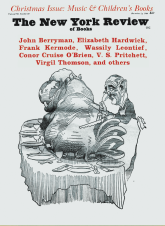To the Editors:
While turning once again to Shakespere—so certain a guide, as well as a comfort, in these troubled times—I came upon the following passage from Henry V, Act IV, Scene III, which seems to me to have lost remarkably little significance through the passage of time. I suggest that it may strike other readers as pertinent, and urge you to reproduce it:
Enter the King
WESTMORELAND: O that we now had here
But one ten thousand of those men in England
That do no work today!
KING HENRY: What’s he that wishes so?
My cousin Westmoreland? No, my fair cousin:
If we are mark’d to die, we are enow To do our country loss; and if to live, The fewer men, the greater the share of honour.
God’s will I pray thee, wish not one man more.
By Love, I am not covetous for gold, Nor care I who doth feed upon my cost
It yearns me not if men my garments wear;
Such outward things dwell not in my desires:
But if it be a sin to covet honour I am the most offending soul alive. No, faith, my coz. wish not a man from England:
….O, do not wish one more!
Rather proclaim it, Westmoreland, through my host.
That he which hath no stomach to this fight,
Let him depart; his passport shall be made
And crowns for convoy put into his purse.
Sociologists will agree, I feel quite sure, that the passage may be said to provide, in Max Weber’s terms, an excellent example of Kadi, as distinct from bureaucratic, leadership.
Edgar Z. Friedenberg
University of California
Davis
This Issue
December 15, 1966



